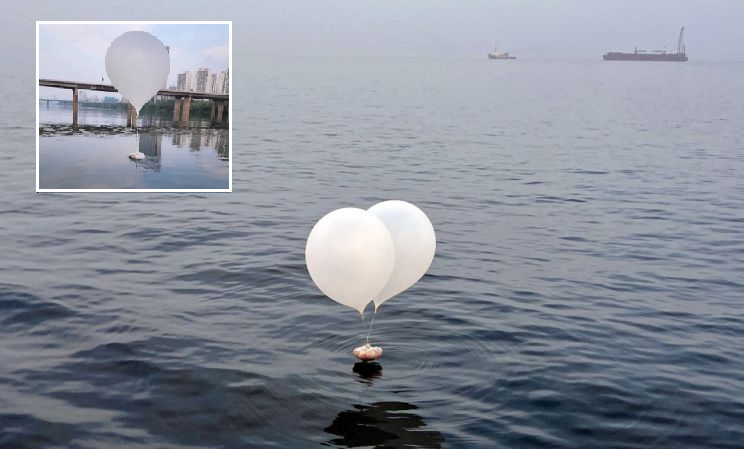
- This exchange of trash balloons is seen as an attempt to escalate tensions and provoke each other amid the longstanding conflict between the two Koreas.
- The joint maritime exercises between South Korea, Japan, and the United States around the Korean Peninsula, a first for the three countries, are considered to have provoked North Korea to resort to unscrupulous tactics.
- The improved relationship between Japan and South Korea who resolved many of their historical differences and agreed to cooperate more closely has made North Korea feel increasingly isolated in the region.
The Asia-Pacific region is considered the new centre for 21st-century geopolitics. Recently, there have been interesting developments taking place around the Korean Peninsula. North Korea has sent balloons filled with trash and waste materials into South Korea. In response, South Korea has sent similar trash-filled balloons back to North Korea. These balloons carry a mix of items, including pop music, literature, and waste materials. This exchange of trash balloons is seen as an attempt to escalate tensions and provoke each other amid the longstanding conflict between the two Koreas. This unusual method of expressing animosity highlights the degree of the strained relations and the continuing hostility in the Korean Peninsula.
The recent escalation has been ignited by South Korea’s increasing engagement with the United States. North Korea opposes the alliance between South Korea, Japan, and the United States. For the first time in 2024, these three countries conducted joint maritime exercises around the Korean Peninsula, marking the first military alliance of its kind among them.
Additionally, the United States has increased its military involvement with South Korea, leading to a greater number of defence exchanges and military deployments, which further bolster South Korea’s deterrence capabilities. This has provoked a strong reaction from North Korea, which has historically received military support from China.
One other reason North Korea feels increasingly isolated in the region is the improved relationship between Japan and South Korea. Last year, these two countries resolved many of their historical differences and agreed to cooperate more closely. This new alliance aims to enhance regional stability, which has been under threat due to the aggressive actions of China and North Korea. The cooperation between Japan and South Korea not only strengthens their security but also bolsters American influence in the region. This trilateral alliance makes North Korea feel more isolated and threatened.
Recently, Russia has also become more involved in the region. Russia recognizes the strategic importance of the Korean Peninsula and the South China Sea, seeking to strengthen its geopolitical and economic interests in the area. Russia’s relationship with North Korea has deepened, partly due to the ongoing war in Ukraine, where Russia is in greater need of military support, which North Korea has been providing for the past two years.
The close relationship between North Korea and Russia was evident when North Korean leader Kim Jong-un visited Russia last year, and a reciprocal visit by Russian President Vladimir Putin is expected soon. This growing alliance is seen as a counterbalance to the increasing cooperation between South Korea, Japan, and the United States.
The ongoing developments between North Korea and South Korea are likely to worsen the situation in the Korean Peninsula. Neither player is willing to back down from their contentions, and both are increasing their deterrence measures. This escalation makes the Korean Peninsula one of the most critical points in the Asia-Pacific region. It is important for both countries, which are directly or indirectly supported by their allies, to understand each other’s concerns and work towards resolving their issues diplomatically.
Aayush Pal is a freelance writer on contemporary geopolitical developments. The views expressed in his work are entirely his own.
